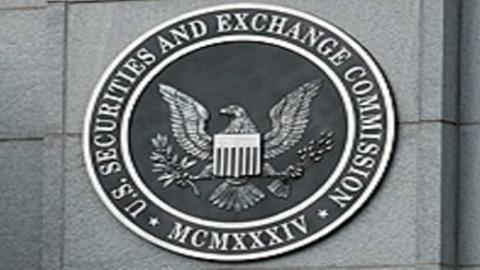
Similar Posts

Major Banks Fined: Citi, HSBC, Morgan Stanley, and RBC Penalized for UK Bond Pricing Disclosure Violations
The Competition and Markets Authority (CMA) has fined several major banks for breaching competition regulations by colluding on UK government bond pricing in May 2023. The banks involved, including Citi, HSBC, Morgan Stanley, and RBC, exchanged sensitive pricing information via private Bloomberg chatrooms. Deutsche Bank received immunity for disclosing the anti-competitive behavior. Fines imposed include £17.16 million for Citi, £23.4 million for HSBC, £29.7 million for Morgan Stanley, and £34.2 million for RBC. CMA’s Juliette Enser emphasized the importance of maintaining a competitive financial sector for the UK economy’s growth and investor confidence.

Block Faces $40 Million Penalty for Major AML Compliance Failures
Block, a leading fintech company, has faced serious compliance issues following a New York Department of Financial Services investigation. The probe highlighted critical gaps in Block’s Bank Secrecy Act and Anti-Money Laundering programs, including inadequate customer due diligence, insufficient risk controls, and failure to monitor transactions effectively. Furthermore, the company’s handling of high-risk Bitcoin transactions raised concerns about potential illegal activities. In response to these findings, Block has been fined and will appoint an independent monitor to oversee compliance efforts. Superintendent Adrienne Harris stressed that compliance must keep pace with the company’s growth to avoid regulatory violations.

Revolut’s Bold Move: €1 Billion Investment in France and Banking License Application
Revolut plans to establish its new western European headquarters in Paris, aiming to create at least 200 jobs in France. As its largest EU market, France has around 5 million customers and nearly 300 employees. The company targets 10 million users by 2026 and 20 million by 2030. While holding a Lithuanian banking license for EU operations, Revolut will maintain its Vilnius base for expansion. CEO Nik Storonsky acknowledged past regulatory oversights and is pursuing 10 global license applications, including a Prepaid Payment Instruments license from India. These initiatives reflect Revolut’s commitment to growth and regulatory compliance in the fintech sector.

Regulators Slam ASX for Batch Settlement Breakdown: What You Need to Know
Recent issues with the ASX’s Chess system have raised operational reliability concerns in the Australian equity market. A memory allocation problem prevented batch settlements for cash equities, leading to cancellations and rescheduling. Regulatory bodies, including the RBA, expressed serious concerns and downgraded ASX’s operational risk rating. They urged swift remediation and suggested enhancing resources and contingency plans. ASX’s transition from a failed blockchain project to the BaNCS platform is underway, with an anticipated clearing services rollout by early next year. ASX CEO Helen Lofthouse emphasized their commitment to modernization and learning from recent incidents to improve operational practices.

Industry Groups Urge SEC to Reconsider Controversial Cyber Disclosure Rule
The cybersecurity disclosure rule, implemented two years ago, requires public companies to report material cyber incidents within four business days. While aimed at enhancing transparency and protecting investors, it has faced backlash from industry stakeholders, including major financial organizations. Critics argue that the rule increases costs, heightens risks by prematurely disclosing breaches, strains resources, and can lead to market confusion. Additionally, some assert it could aid ransomware groups, citing an extortion case involving MeridianLink. Overall, concerns have emerged that the rule complicates compliance and undermines the SEC’s mission to facilitate capital formation and protect investors.

Coinbase Secures Victory: SEC Agrees to Dismiss Enforcement Case
Coinbase’s chief legal officer, Paul Grewal, announced that the SEC staff has tentatively agreed to dismiss its case against the company, a decision pending approval from SEC commissioners. This case, initiated in 2023, accused Coinbase of operating as an unregistered securities exchange. With new political leadership, particularly under Donald Trump, the SEC is reassessing its cryptocurrency regulations, which may benefit crypto firms. Coinbase CEO Brian Armstrong expressed relief over the potential dismissal, while Grewal criticized the previous SEC leadership for overstepping its authority. The outcome could significantly impact the regulatory landscape for the cryptocurrency industry.
